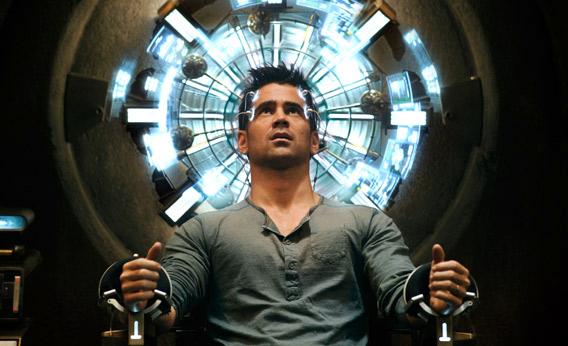There have only been a handful of Hollywood films about a family grieving the loss of a loved one after 9/11. The only one that immediately comes to mind is “Reign Over Me” with Adam Sandler and Don Cheadle. Only four years after the tragedy, novelist Jonathan Safran Foer released the first novel to deal with the attacks so directly, “Extremely Loud and Incredible Close.”
Foer’s novel divided critics. Some found it touching and even fun. Others, like myself, could not stomach all of Foer’s formal gimmicks and found his novel to be extremely sentimental and incredibly cloying. While Stephen Daldry’s film adaptation of the book divests itself of most of the formal annoyances of the novel, it simply cannot let go of its manipulative grasp on the audience’s heartstrings.
“ELIC” follows Oskar Schell, a boy-genius wunderkind who admits he might have Asperger’s Syndrome (he says the results of the test “were inconclusive”). After losing his father (Tom Hanks) during 9/11, Oskar finds a key he believes his father meant for him to stumble across. The rest of the film follows Oskar’s journey as he tries to find the matching lock and, in the process, learns to live without his father.
“ELIC” could have worked had it been less faithful to the novel. Yet, some of the changes only made the film more sentimental and sugary. For instance, Oskar’s mother (Sandra Bullock) is so limited in her screen time that she becomes a pathetic, hysterical, sad housewife. In the book, Foer gave her depth by showing her pursuing new relationships. But, I digress.
Hanks is also miscast. If the film had merely stuck to showing the father in flashbacks, then his whimsy and aimlessness would have made sense; this is how Oskar remembered him after all. But, by showing him alive and well at the beginning of the film and placing the tragedy later, the audience gets little sense of who the man was. To compensate, Daldry offers teary phone calls, archival footage of 9/11, and the iconic image of the “falling man” to manufacture tears.
And did it ever work. I cried on three separate occasions throughout the film. So, if you are looking for a competent weepy, look no further than “ELIC.” It is not a bad film. Daldry (“The Hours,” “Billy Elliot,” “The Reader”) knows his way around a camera and coaxes, yet again, another good performance from his preteen lead. Similarly, some of the supporting players are wonderful. John Goodman shines in a perfect, if tiny, role for him. Viola Davis brings wisdom and pain to all of her roles. Swedish legend Max von Sydow gives the silent performance of the year, never uttering a word. And Jeffrey Wright, one of those “oh-that-guy’s” delivers the punch at the film’s climax with a sure hand of a true veteran.
The formal elements are not the issue with “ELIC.” What’s so maddening about it is its naïve and cheap, almost exploitive, emotional core. After all, how interesting are children, really? The film is undeniably sad. The boy, like so many of the characters who populate his New York odyssey, has lost something dear to him. But too much of the plot and the emotional payoff of the film rely on the emotionally distant Oskar. How can one not weep for innocence the first time it encounters real evil?
Instead of offering a sympathetic anecdote for loss and trauma as it sets out to do, “ELIC” ends up milking cheap tears. There are too many scenes which rely on Oskar’s unexplained hatred of his mother, where the emotional crux centers on his telling her that he wished she had died instead. See what I mean? So, in effect, “ELIC” ends up manufacturing too many of its own little tragedies and traumas, and in doing so, loses sight of the much larger possibility for human connection.
C or 2.5/5







